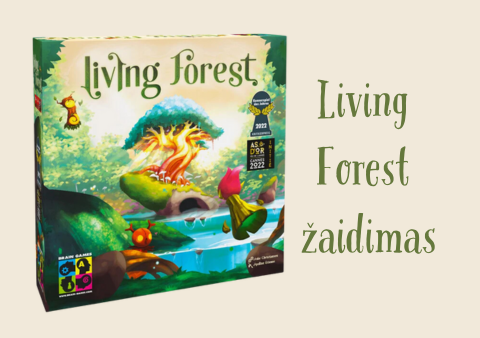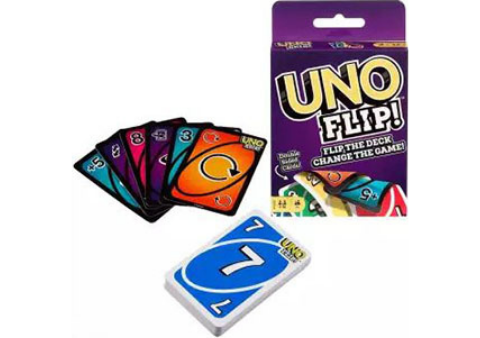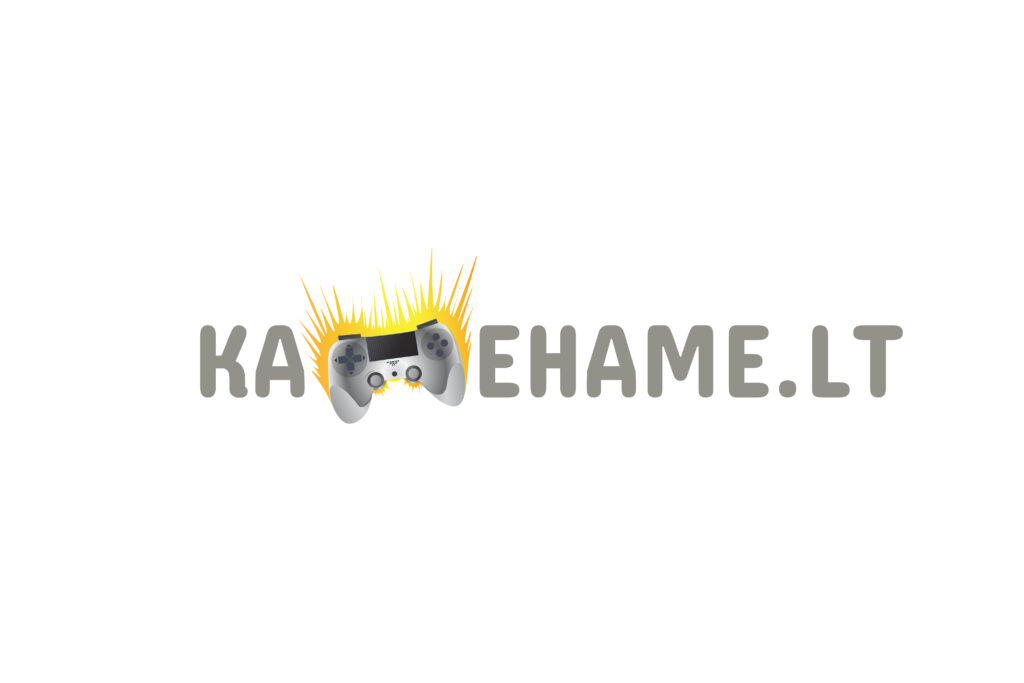Monopoly means classic an economic board game to buy, sell or rent real estate. The rules of Monopoly provide a real-life introduction to financial management and investment. If you are looking for the rules of Bank Cards Monopoly, please click on here.
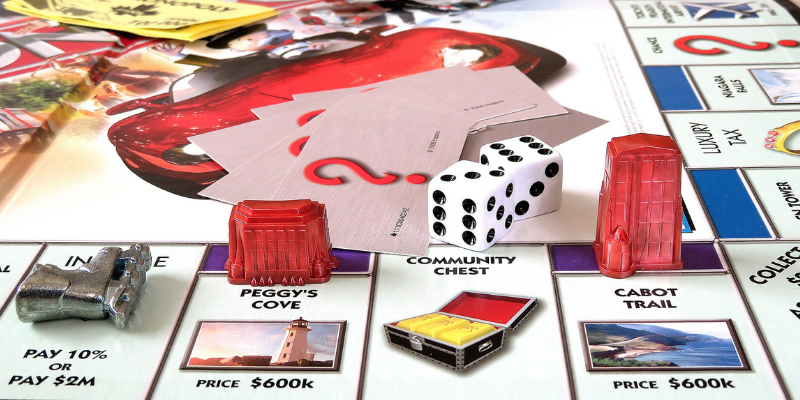
Game set:
- 1 game board;
- 10 pieces to walk on the game board;
- 28 property cards, which players receive when they buy property;
- 16-card "chance";
- 16 "society fund" cards;
- 32 house figurines;
- 12 hotel figurines;
- 2 dice;
- Monopoly money.
Frequently asked questions
Monopoly for For 2-6 players. Although up to 8 people can play.
How old can I play Monopoly?
According to the original Monopoly rules, the recommended age of players is more than 8 years You can also play with younger children, but it is wise to form teams of one adult (or older child) and one young child. This is a great opportunity to teach children what money is and how to use it.
How much Monopoly money to distribute? How much and what kind of money does each player get?
The banker deals to each player 1500 Lt each. Banknotes must be:
2×500 Lt;
4×100 Lt;
1×50 Lt;
1×20 Lt;
2×10 Lt;
1×5 Lt;
5×1 Lt.
Preparing for the game
- Houses, hotels, money and property cards are placed in the appropriate compartments in the game box.
- Separate cards for the Opportunity Fund and the Society Fund. They must be placed face down on the designated spaces on the game board.
- Choose the pieces with which players will walk. They are placed on the "Walk" box on the board.
- Someone becomes a banker. He or she is elected by mutual agreement. The banker can either play along with everyone else and buy real estate, or simply do the banker's job.
- The banker hands out money to each player. How to split it can be found in the FAQs above.
- The banker not only distributes money, but also stores property cards and figurines of houses and hotels. He pays salaries, bonuses and other incentives; collects fines and taxes; and lends money against mortgages. The banker becomes the auctioneer at the auction.
- If there is a shortage of money, the bank can write the denominations on plain paper. It will never go bankrupt.
- The player who rolls the most eyes starts the game. The other players' turns are clockwise.
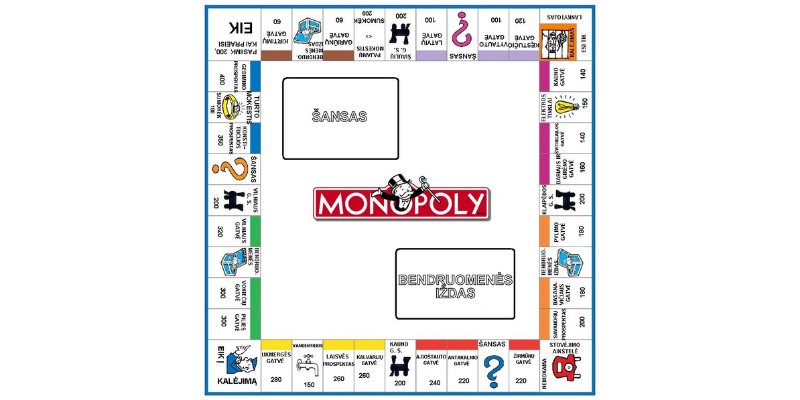
The game is played according to the normal Monopoly rules
Game progress
Movement on the game board is very simple. Simply roll the dice and go through as many boxes as the number of dice that landed.
When you stop on a particular box, you will have to perform an action. It could be one of the following:
- The player buys the property on which he is standing;
- Rent is paid if you stand on a property you have already bought;
- Taxes are paid when you go to the tax window;
- You take a card from the Opportunity or Community Fund and follow the instructions on it;
- Going to Lukiskes prison;
- Recreation free parking;
- The salary is 200 Lt;
- Visit a prison.
Two identical numbers
When a player rolls two identical numbers on both dice, he takes a turn and rolls the dice again. If three consecutive identical numbers are rolled, then the player has to go straight to prison.
Passing the EIC
When a player stands on or passes the EIC window, the bank pays out £200. If you pass this box, you stop at the "chance" or "public fund" box and draw a card that says "Go to EIC", then you get £200 again.
Purchase of assets
When a player stands on a property that has not yet been purchased, he can buy it. The price of the property is written on his card. After the money is paid, the bank hands over the property certificate card. The card should be placed next to you, face up, where the other players can see it.
If the player does not want to buy the property, the bank then announces an auction and sells the property to the highest bidder. The player who refused to buy the property can also participate in the auction.

Street management
When other players stand on a street they have already bought, they pay rent to the owner. It is most profitable to have all the streets of one colour, as this allows you to build home.
Stopping on a street that has already been bought
When a player stands on a purchased street, the owner asks for rent. He must do so before the next player's turn. The rent is shown on the property card. Its amount increases as you park home via hotels. If a player has all the streets of that colour, the rent is doubled even if there are no buildings. This does not apply if at least one street is mortgaged. If you stand on a mortgaged street, there is no rent at all.
Stopping on a service company
If the company hasn't been bought yet, it can be bought. The price is shown on the asset card. If the company has already been bought, rent is paid. The amount depends on the number of rolls the player has made during this turn. This number is multiplied by 4 and is the rent. If the owner owns both companies, then the number of dice rolled is multiplied by 10.
When a player steps on a company because they have been instructed to do so by a Chance card or a Public Fund card, they have to roll the dice to calculate the amount of rent.
If the company is refused, it is sold at auction.
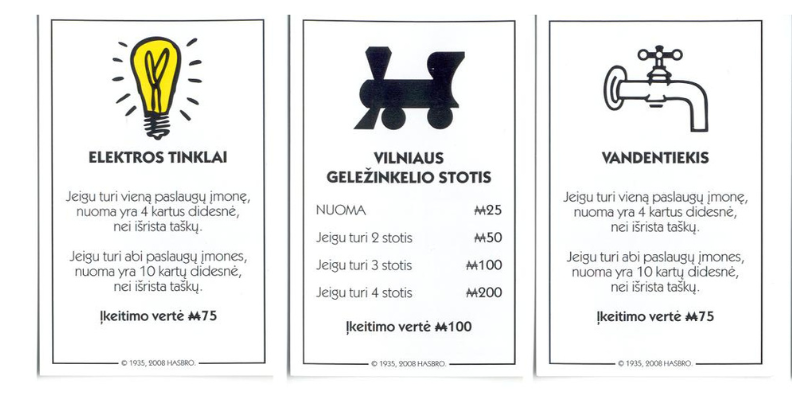
Stopping at the railway station
If it hasn't been bought yet, it can be bought. If you refuse to buy, the station will be auctioned.
If you stand on the station you have bought, you will have to pay rent. The amount depends on how many stations the owner has.
Stopping on the "chance" or "society fund" cards
The top card must be taken from the top card of the pile on which the cell is standing. Examples of card instructions:
- Move your figurine to a specific object;
- Pay money to the bank;
- To get money from the bank or from other players;
- Go to prison;
- Get a free get out of jail card.
All instructions must be followed. Once they have been carried out, the card is placed at the bottom of the pile. When you are released from prison, you must keep the card until you need it.
If the card tells you to go to jail and you pass the EIC checkpoint, nobody gives you £200. If the card tells you to go to other cells and you have to go through the EIC, then £200 is due.
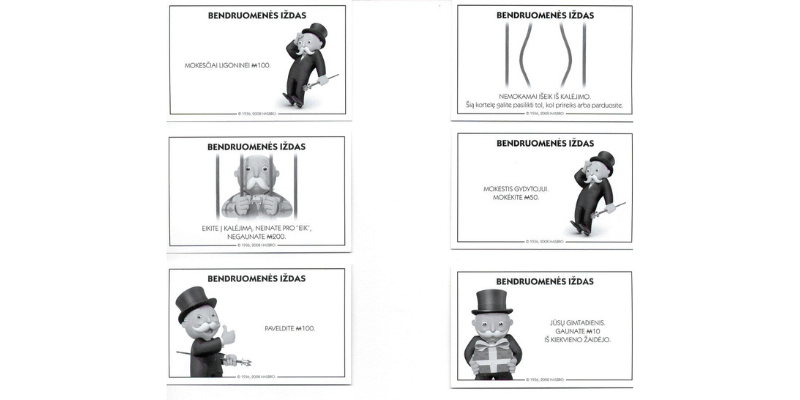
Stopping at the tax window
Payment of the specified amount to the bank
Free parking
Standing up here is just waiting for the next move. No other sanctions. The player can continue to collect rent and build houses.
Prison
To enter the prison, either stand on the "Go to prison" box, draw a card telling you to go to prison, or roll the same dice three times in a row.
The turn ends as soon as the player is sent to jail. After crossing the start box, the player does not receive 200 Lt.
According to the Monopoly rules, there are several ways to get out of jail:
- pay a fine of LTL 50 and roll the dice;
- buy a get-out-of-jail-free card from another player (the amount is negotiated in person);
- use your existing prison release card;
- you need to be in prison for three moves. But you can roll the dice before every turn you miss. If both dice roll the same number, that's your ticket to freedom. Once the dice have been rolled and the prison has been released, the number of dice rolled is the number of ticks that were rolled. A new die is not rolled. If you do not roll a double within three turns, you will have to pay a fine of 50 Lt before you can roll the dice and move on.
Rent can continue to be collected while in prison.
If a player climbs onto a prison but was never sent to it, then they simply visit the others and continue playing as normal.
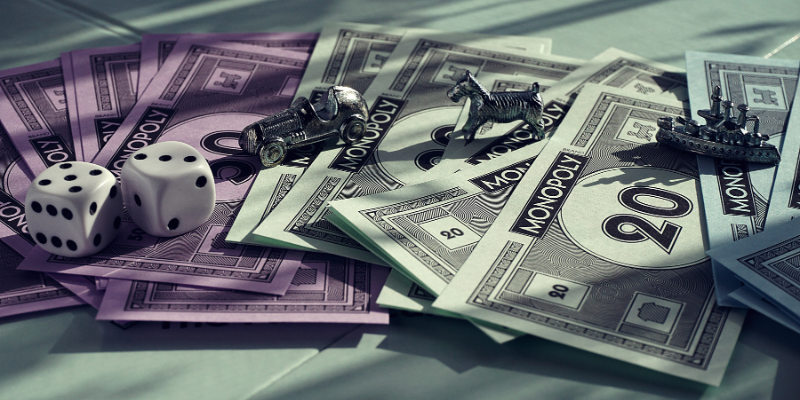
Home
Houses can be built when the player has bought all streets of one colour. When houses are built on a street, the rents increase. If a player already has a house on one street, opponents who step on unbuilt streets of that colour still pay double the rent. House prices are written on the property cards. Houses can be bought either during the player's turn or between turns. It is not necessary to stand on a specific street when building. It is important to remember that houses must be built evenly. A second house can only be built when all the streets of the same colour already have one house on them. Similarly with the third or fourth house. The same rule applies to the sale of houses. As many houses can be bought at the same time as the player wants and has the money to buy.
If at least one street Pledgedhouses cannot be built on streets of that colour.
Hotels
Hotel = 5 houses, so when the hotel is built it is necessary to remove the existing 4 houses and give them to the bank. Only one hotel per street and no more.
The cost of the hotel is shown on the card + the cost of 4 houses.
Sale of property
Train stations, businesses and undeveloped streets are available for sale. The price is agreed between players. Streets cannot be sold if they contain buildings.
Buildings must be sold evenly, in the same way as when they were bought.
Buildings can only be sold to the bank for half the purchase price. They cannot be sold to other players. You can sell at any time. When a hotel is sold, the bank pays half the purchase price of the hotel and half the purchase price of the four houses. The sold buildings must be returned to the bank immediately.
If the player wants to sell only the hotel but not the houses, he gets half the price of the hotel from the bank and 4 houses.
Pledged property can only be sold to other players. The bank cannot.
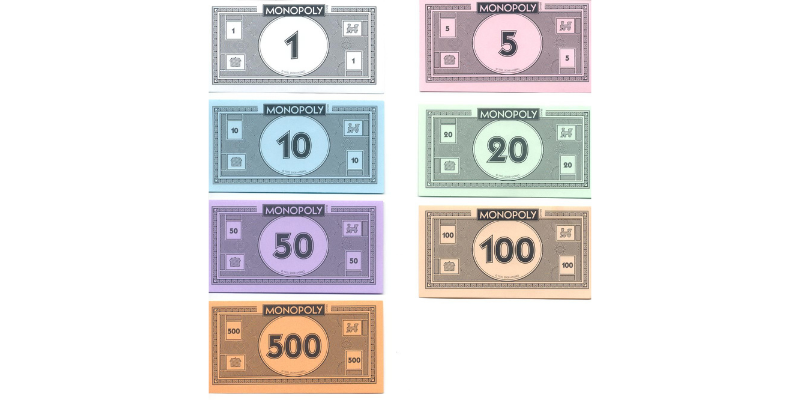
Pledge
When you run out of money, you can mortgage your property. If a street is mortgaged, the first thing to do is to sell all the buildings on the street. Then the mortgaged property's card is turned over and the bank pays the amount written on it. In order to exchange the card, the amount of the mortgage + 10% interest must be paid to the bank. Once all the streets of one colour have been redeemed, the buildings can be built again.
Bankruptcy
Bankruptcy is declared when a player has to pay the bank or an opponent sums of money that cannot be collected even after selling and pawning all his cards.
If the player owes money to the bank, he takes all the asset cards and cash. The property cards are then auctioned by the bank. All prison release cards must be placed at the bottom of the piles.
If the debt is owed to another player, then all buildings are sold to the bank for half the price. The creditor then takes over all the property cards, cash and bank release cards. The pledged cards are also handed over to that player and he has to pay 10% to the bank immediately and choose whether to pay the pledges immediately or later. If the cards are redeemed at a later date, interest will again be payable to 10%.
Notes
If a player does not have enough money to pay, he can pay part of the amount in cash and part in property. This is subject to the agreement of both parties.
Once you have a property, it's important to see if someone is standing on it and then ask for rent.
Only a bank can lend to players. You cannot borrow from other players. The exception is if the players mutually agree to change the Monopoly rules and the new rules allow borrowing from other players.
Winner
The last player remaining unbankrupt wins.
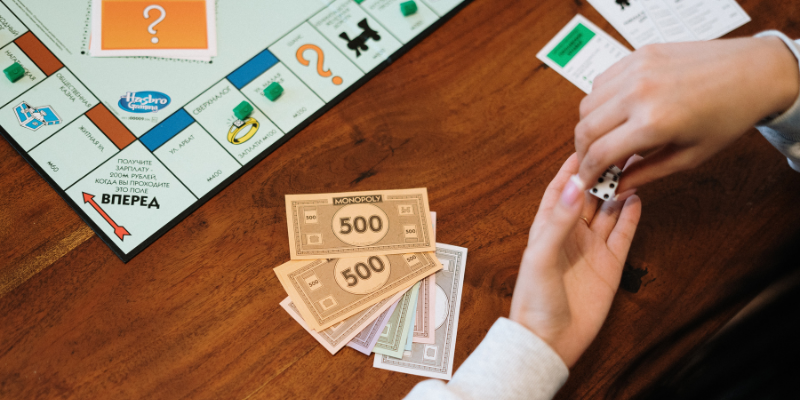
Monopoly rules for fast play
The Quick Game is similar to regular Monopoly, but with some of the rules of Monopoly changed:
In preparation for the game, the banker must shuffle all the property cards and deal two to each player. Players must pay for the cards immediately.
For a hotel, three houses built are enough. The cost of renting a hotel is no different from a regular game.
End of game. The first player to go bankrupt is out of the game. When the second player goes bankrupt, the game ends. The bankrupt player shall return to the creditor what is specified in the rules.
The remaining players count their wealth and the richest player wins. Things that count:
- cash;
- streets, stations and businesses (their purchase price values);
- pledged properties (half the value of their purchase price);
- houses at purchase prices;
- Hotels at purchase prices + prices of three houses.
The duration of the game can be agreed. At the end of the game, the richest player wins.
If you're tired of classic Monopoly, you can choose from newer versions.
